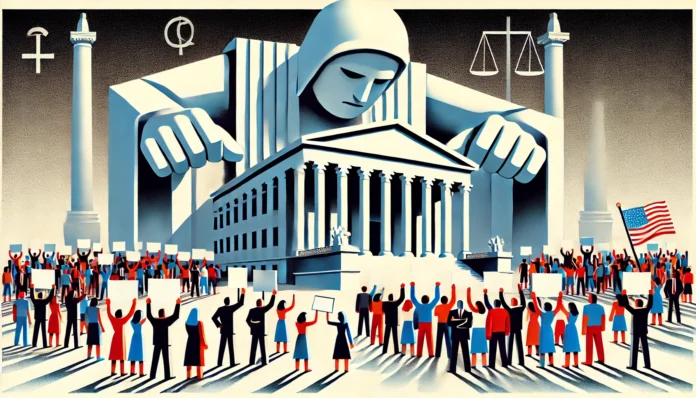Controversial Religious Freedom Laws: How Atheists Are Fighting Back
Across the United States, a new wave of so-called “religious freedom” laws is sparking heated debate and legal battles. While proponents claim these measures protect faith-based expression, critics—including many Atheist and secular organizations—argue that they often serve as a pretext for discrimination, particularly against religious minorities, LGBTQ+ individuals, and the nonreligious. In 2025, the fight for true church–state separation has reached a critical juncture, with Atheists at the forefront of the resistance.
The Rise of Religious Freedom Laws—and Their Critics
Over the past decade, dozens of states have introduced or passed legislation under the banner of “religious freedom.” These laws, such as Oklahoma’s SB 404 and Colorado’s HB24-1234, often allow individuals and businesses to refuse services or accommodations based on religious beliefs. While supporters frame these measures as necessary protections for people of faith, organizations like American Atheists and the Secular Coalition for America warn that they undermine civil rights and erode the separation of church and state.
The 2025 State of the Secular States report by American Atheists highlights a disturbing trend: the increasing influence of Christian nationalism in state legislatures. According to the report, more than 30 states considered bills in 2024 and 2025 that would expand religious exemptions, with many explicitly targeting public education, healthcare, and LGBTQ+ protections.
Legal Challenges and Courtroom Battles
Atheist and secular organizations are not standing idly by. In Oklahoma, American Atheists, led by President Nick Fish, joined a coalition of civil rights groups to challenge the state’s new religious exemption law in federal court. “These laws are not about protecting religious freedom—they’re about giving special privileges to one set of beliefs at the expense of everyone else,” Fish said in a recent press release.
In Colorado, Melina Cohen, legal director for the Secular Coalition for America, has spearheaded efforts to block legislation that would allow healthcare providers to deny care based on religious objections. “We’re seeing a coordinated effort to roll back decades of progress on civil rights,” Cohen told The Denver Post. “Our lawsuits are about ensuring that no one is denied services or dignity because of someone else’s faith.”
Minnesota has also become a battleground. Tim Ward and Sheryl Kallivrousis of the Minnesota Atheists have filed amicus briefs in support of plaintiffs challenging the state’s proposed religious exemption for adoption agencies. “We’re fighting for a Minnesota where every child and family is treated equally, regardless of religious belief,” Ward said in a statement.
Grassroots Activism and Community Organizing
Legal action is only one front in the battle. Across the country, Atheist and secular activists are mobilizing at the grassroots level. Stephanie Zvan, a prominent organizer with Minnesota Atheists and a board member of Secular Women, has helped launch community education campaigns to inform the public about the real-world impact of religious exemption laws. “We’re holding town halls, writing op-eds, and meeting with lawmakers to make sure our voices are heard,” Zvan explained in a recent interview.
In states like Texas and Florida, local Atheist groups are partnering with LGBTQ+ organizations, interfaith allies, and civil liberties advocates to organize rallies and petition drives. These efforts have led to the defeat or amendment of several proposed bills in 2025, demonstrating the power of coalition-building and persistent advocacy.
The Broader Context: Christian Nationalism and Legislative Trends
The push for expansive religious exemptions is closely tied to the rise of Christian nationalism—a movement that seeks to privilege Christianity in American law and culture. The 2025 State of the Secular States report warns that this ideology is driving much of the current legislative agenda, with lawmakers introducing bills that blur the line between church and state.
“We’re seeing a concerted effort to redefine religious freedom as a license to discriminate,” said Nick Fish. “But the Constitution is clear: the government cannot favor one religion over another, or religion over nonreligion.”
Despite setbacks, Atheist and secular organizations are making headway. In several states, courts have struck down or narrowed religious exemption laws, citing violations of the Establishment Clause and equal protection guarantees. Public opinion is also shifting, with recent polls showing that a majority of Americans oppose using religion as a justification for discrimination (Pew Research Center, 2025).
Looking Ahead: The Fight Continues
As the 2025 legislative session unfolds, Atheist and secular advocates remain vigilant. With new bills on the horizon in states like Georgia and Tennessee, the need for robust legal and grassroots responses has never been greater. Organizations are expanding their outreach, training new activists, and building alliances across ideological lines.
“This is a defining moment for church–state separation in America,” said Melina Cohen. “We’re not just fighting for Atheists—we’re fighting for everyone’s right to live free from religious coercion.”
For more information and resources, visit the 2025 State of the Secular States report and follow updates from American Atheists, Minnesota Atheists, and the Secular Coalition for America.
The struggle for equal rights and true religious freedom is far from over, but Atheists and their allies are proving that organized resistance can make a difference—one courtroom, one community, and one state at a time.

